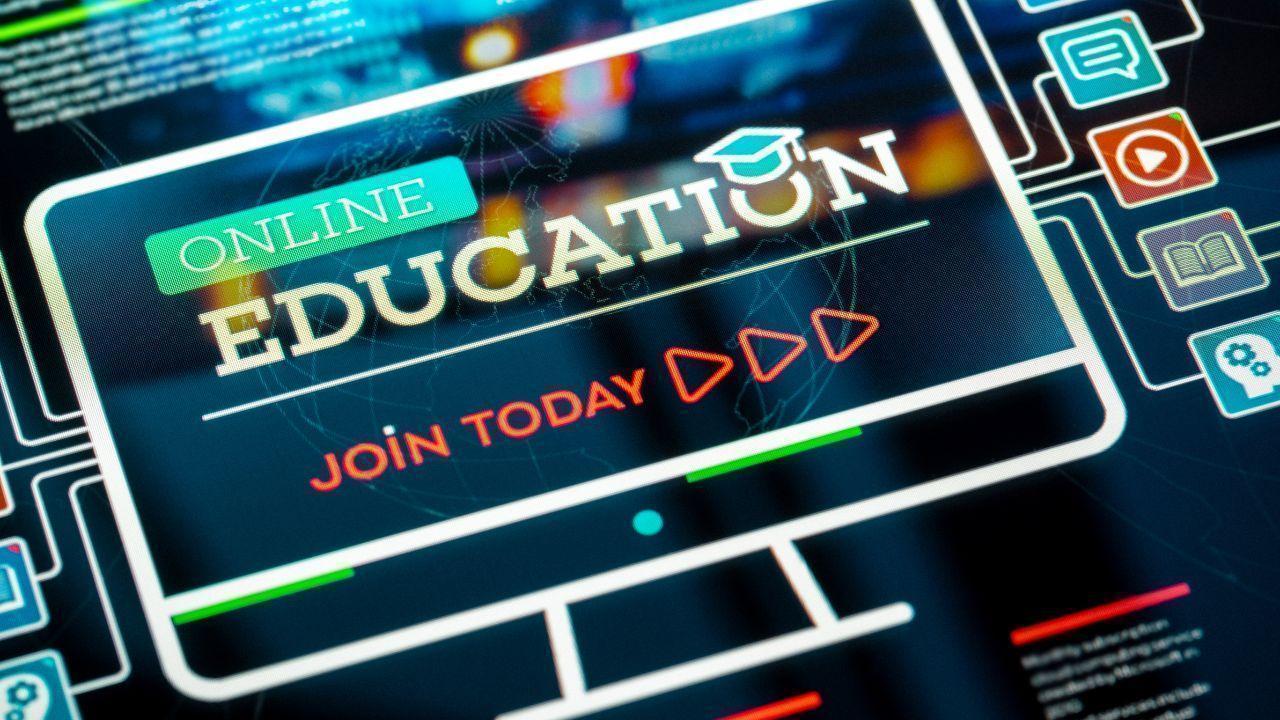
Post by : Vansh
Education is experiencing a remarkable transformation as digital tools and innovative strategies reshape the way students learn, teachers instruct, and institutions operate. The era of digital learning has brought education into a more interactive, personalized, and globally connected realm. By leveraging technology in education, schools and universities are creating learning environments that not only deliver knowledge efficiently but also inspire creativity, critical thinking, and lifelong learning. This trend is no longer a future concept—it is happening now, and innovation in action is redefining education for generations to come.
Traditional classroom methods, while effective for decades, often limited student engagement and creativity. Rote memorization, fixed timetables, and uniform teaching approaches were unable to cater to diverse learning styles. Today, digital learning is breaking these barriers. Interactive apps, virtual classrooms, AI-driven assessments, and cloud-based platforms offer students the opportunity to learn at their own pace and explore subjects in depth.
With the integration of technologies such as augmented reality (AR) and virtual reality (VR), students can now engage in immersive learning experiences. For instance, biology students can explore the human body in 3D, while history learners can virtually visit ancient civilizations. These innovations bring learning to life, making abstract concepts tangible and memorable.
One of the most significant advantages of technology in education is the ability to provide personalized learning experiences. AI-powered platforms analyze student performance and adapt lessons according to individual needs. For example, a student struggling with math can receive additional practice problems, while an advanced learner can access enrichment materials to challenge their skills.
This personalized approach ensures that each student is supported according to their unique abilities, fostering both confidence and competence. By combining human guidance with intelligent digital tools, educators can nurture future-ready minds who are capable of critical thinking, problem-solving, and adaptability.
Engagement is a key factor in effective learning, and digital tools have revolutionized the way students interact with educational content. Gamification, interactive simulations, and collaborative online projects encourage active participation and make learning enjoyable.
For example, language learners can practice conversational skills through AI-powered chatbots, while coding students can test and debug programs in real-time on cloud platforms. These hands-on experiences foster deeper understanding, retention, and creativity. By implementing digital learning solutions, educators can ensure that students remain motivated and invested in their educational journey.
Digital tools also enhance accessibility, ensuring that quality education reaches learners regardless of geographic location or socioeconomic background. Online courses, virtual classrooms, and cloud-based resources allow students in remote or underserved areas to access the same content as those in urban schools.
Assistive technologies such as screen readers, speech-to-text software, and customizable interfaces make learning inclusive for students with disabilities. This approach demonstrates that technology in education is not just about innovation—it is about creating equitable opportunities for all learners.
The modern workforce demands a combination of technical skills, critical thinking, and adaptability. Innovation in action ensures that students are prepared to meet these demands by integrating coding, AI, data analysis, and digital collaboration into the curriculum.
By exposing students to emerging technologies, educators equip them with skills relevant to future careers. From virtual labs and coding bootcamps to AI-based problem-solving exercises, learners develop both theoretical knowledge and practical expertise, ensuring they are future-ready and capable of thriving in an evolving digital economy.
While technology offers incredible tools, teachers remain central to the learning process. Their role has evolved from simply delivering content to mentoring, facilitating collaboration, and guiding ethical use of technology.
Digital platforms help teachers track student progress, automate administrative tasks, and access analytics that inform instructional strategies. This allows educators to focus on what truly matters—engaging students, fostering curiosity, and promoting critical thinking. By combining human insight with digital learning platforms, teachers can create meaningful, impactful educational experiences.
Innovation in education is not limited to K-12 or higher education. Lifelong learning has become essential in a rapidly changing world. Professionals and adult learners can now access online courses, webinars, and certification programs from anywhere in the world, enabling continuous skill development.
Cloud-based platforms, AI-driven feedback, and virtual workshops allow learners to acquire new competencies, explore emerging fields, and stay relevant in the workforce. Technology in education ensures that learning is no longer confined to classrooms or formal education—it is a continuous journey that fosters growth, adaptability, and resilience.
Despite the benefits, integrating digital tools into education comes with challenges. Not all students have equal access to devices or reliable internet, creating a digital divide. Teachers need ongoing training to effectively use new technologies. Additionally, issues like data privacy, cybersecurity, and screen-time management must be addressed to ensure safe and responsible learning environments.
Educational institutions, governments, and technology providers must collaborate to overcome these challenges, ensuring that innovation in education is accessible, secure, and effective for all learners.
The future of learning will likely combine traditional classroom instruction with advanced digital learning platforms. Hybrid models, immersive VR experiences, AI tutors, and global collaborative projects will redefine the concept of education.
Students will not only gain knowledge but also develop critical 21st-century skills, emotional intelligence, and a global perspective. Innovation in action will ensure that learners are equipped to navigate the complexities of a digital, interconnected, and rapidly evolving world.
The information provided in this article is for general knowledge and educational purposes only. It highlights trends and insights on integrating digital tools in education to enhance learning outcomes. Readers are encouraged to seek additional guidance as needed. MiddleEastBulletin news is not responsible for any decisions or actions taken based on this content.










NBA Friday Recap: Powerhouse Wins for Miami, LA, Milwaukee, and Clippers
Miami, LA Lakers, Milwaukee, and Clippers triumphed in a thrilling NBA Friday, showcasing standout p

Doncic Shines with 49 Points in Lakers' 128-110 Victory over Timberwolves
Luka Doncic dazzles with 49 points as the Lakers secure a 128-110 win against the Timberwolves, show

Kings Triumph Over Jazz 105-104 with Last-Minute Sabonis Effort
The Sacramento Kings edged out the Utah Jazz 105-104, with Domantas Sabonis making the decisive shot

Argentina's Friendly Match Against India Delayed, New Date to be Announced
The friendly match between Argentina and India in Kochi has been postponed due to FIFA approval dela

Rohit and Kohli Conclude ODI Journeys in Australia with a Victory
Rohit Sharma and Virat Kohli bid adieu to Australian ODIs with a final win, forming a 168-run partne

George Russell's Wrestling Mask Antics at Mexican Grand Prix
George Russell donned a wrestling mask to enjoy the Mexican Grand Prix from the stands, providing a